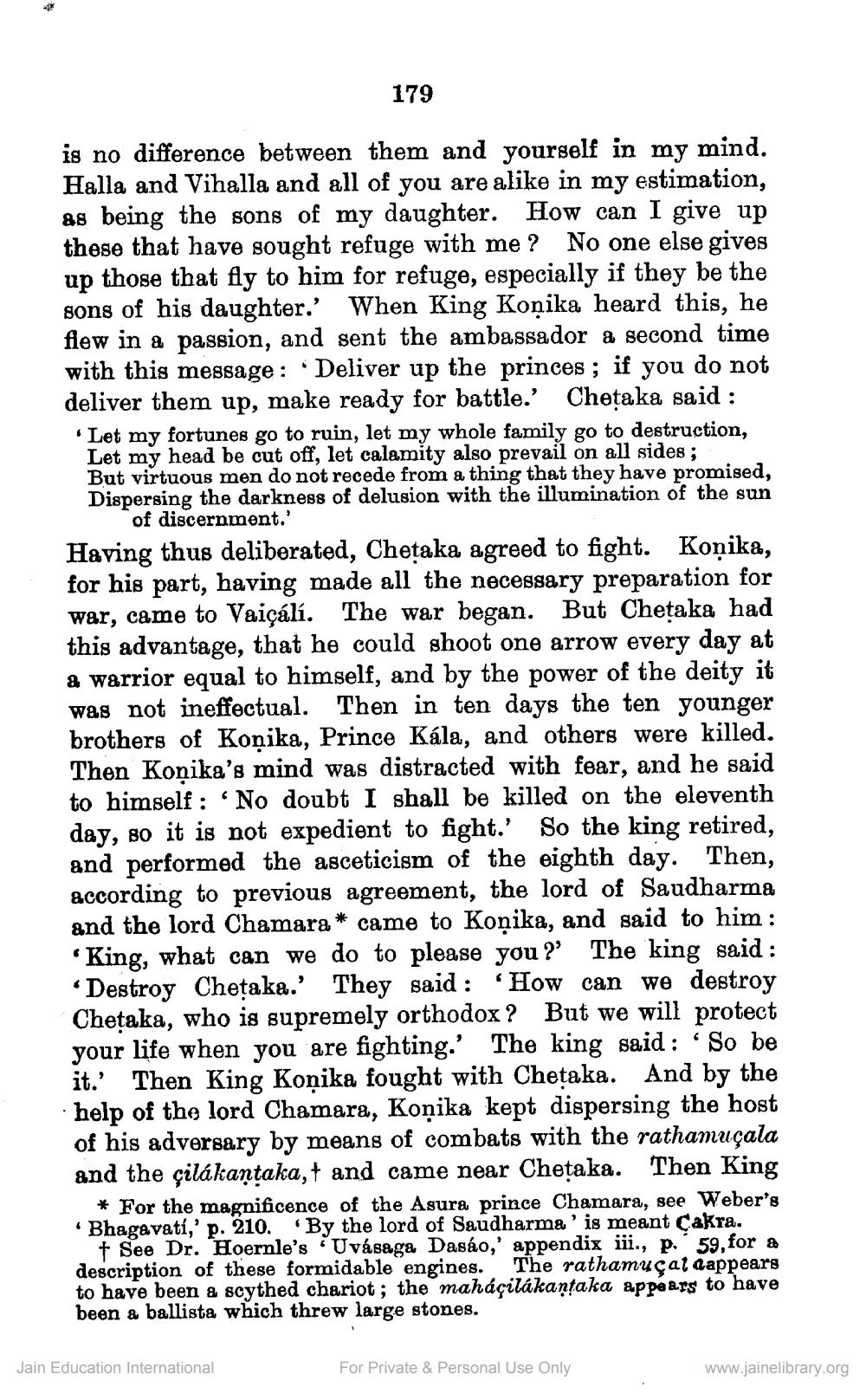________________
179
is no difference between them and yourself in my mind. Halla and Vihalla and all of you are alike in my estimation, as being the sons of my daughter. How can I give up those that have sought refuge with me? No one else gives up those that fly to him for refuge, especially if they be the sons of his daughter. When King Koņika heard this, he flew in a passion, and sent the ambassador a second time with this message: • Deliver up the princes ; if you do not deliver them up, make ready for battle.' Chețaka said : • Let my fortunes go to ruin, let my whole family go to destruction, Let my head be cut off, let calamity also prevail on all sides ; But virtuous men do not recede from a thing that they have promised, Dispersing the darkness of delusion with the illumination of the sun
of discernment.' Having thus deliberated, Chetaka agreed to fight. Konika, for his part, having made all the necessary preparation for war, came to Vaiválí. The war began. But Chetaka had this advantage, that he could shoot one arrow every day at a warrior equal to himself, and by the power of the deity it was not ineffectual. Then in ten days the ten younger brothers of Koņika, Prince Kála, and others were killed. Then Koņika's mind was distracted with fear, and he said to himself : 'No doubt I shall be killed on the eleventh day, so it is not expedient to fight.' So the king retired, and performed the asceticism of the eighth day. Then, according to previous agreement, the lord of Saudharma and the lord Chamara * came to Koņika, and said to him : King, what can we do to please you? The king said : Destroy Chetaka.' They said: 'How can we destroy Chetaka, who is supremely orthodox? But we will protect your life when you are fighting.' The king said: “So be it.' Then King Koạika fought with Chetaka. And by the help of the lord Chamara, Koņika kept dispersing the host of his adversary by means of combats with the rathamuçala and the çilákaņțaka,t and came near Chetaka. Then King
* For the magnificence of the Asura prince Chamara, see Weber's Bhagavatí,' p. 210. By the lord of Saudharma' is meant Cakra.
† See Dr. Hoernle's Uvásaga Dasáo,' appendix iii., p. 59, for a description of these formidable engines. The rathamuçat Qappears to have been a scythed chariot; the maháçilákantaka appears to have been a ballista which threw large stones.
Jain Education International
For Private & Personal Use Only
www.jainelibrary.org




